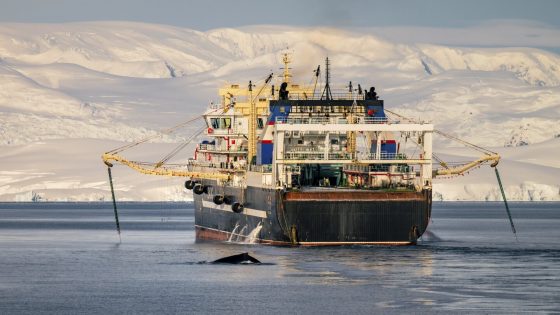Officials have shut down the krill fishery near Antarctica earlier than expected due to overfishing, marking a significant moment in global marine conservation. This closure, announced on August 5, 2025, comes after the catch limit was exceeded for the first time, highlighting the urgent need for sustainable practices in one of the world’s most delicate ecosystems.
- Early closure of Antarctic krill fishery
- Record surge in krill catch reported
- CCAMLR confirms closure of fishing season
- Failed management plan by multiple governments
- Increased pressure on krill stocks noted
- Krill's role in climate change mitigation
The decision follows a concerning report that revealed a record surge in krill catches, driven by a lack of effective management plans. The Commission for the Conservation of Antarctic Marine Living Resources (CCAMLR) confirmed that the fishery would remain closed for the 2024-25 season after trawlers reached the 620,000 metric ton limit.
This unprecedented closure raises critical questions about the balance between human activity and marine conservation. How can we ensure that vital species like krill are protected while meeting global demands? The situation emphasizes the need for international cooperation in managing marine resources effectively.
- Krill is essential for the diets of whales and other marine life.
- Overfishing threatens not only marine biodiversity but also climate stability.
- Current fishing practices have led to a significant increase in krill catches.
As we move forward, it’s crucial for nations to collaborate on effective management strategies that safeguard our oceans, ensuring a balance between human needs and environmental health.
































